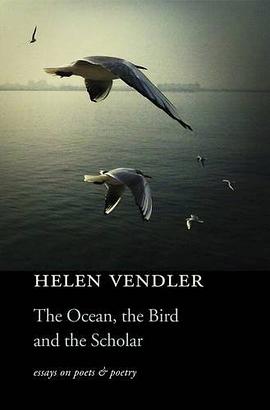The Ocean, the Bird, and the Scholar
Douban
Essays on Poets and Poetry
Helen Vendler
Übersicht
One of our foremost commentators on poetry examines the work of a broad range of nineteenth- and twentieth-century English, Irish, and American poets. The Ocean, the Bird, and the Scholar gathers two decades’ worth of Helen Vendler’s essays, book reviews, and occasional prose—including the 2004 Jefferson Lecture—in a single volume. Taken together, they serve as a reminder that if the arts and the patina of culture they cast over the world were deleted, we would, in Wallace Stevens’s memorable formulation, inhabit “a geography of the dead.” These essays also remind us that without the enthusiasm, critiques, and books of each century’s scholars, there would be imperfect perpetuation and transmission of culture.
All of the modern poets who have long preoccupied Vendler—Wallace Stevens, Seamus Heaney, John Ashbery, and Jorie Graham—are fully represented, as well as others, including Langston Hughes, Allen Ginsberg, Robert Lowell, Elizabeth Bishop, Amy Clampitt, James Merrill, A. R. Ammons, and Mark Ford. And Vendler reaches back into the poetic tradition, tracing the influence of Keats, Yeats, Whitman, T. S. Eliot, and others in the work of today’s poets. As ever, her readings help to clarify the imaginative novelty of poems, giving us a rich sense not only of their formal aspects but also of the passions underlying their linguistic and structural invention. The Ocean, the Bird, and the Scholar is an eloquent plea for the centrality, both in humanistic study and modern culture, of poetry’s beautiful, subversive, sustaining, and demanding legacy.
contents
Introduction
1. The Ocean, the Bird, and the Scholar: How the Arts Help Us to Live
2. Fin-de-Siècle Lyric: W. B. Yeats and Jorie Graham
3. The Unweary Blues: The Collected Poems of Langston Hughes
4. The Nothing That Is: Chickamauga, by Charles Wright
5. American X-Rays: Forty Years of Allen Ginsberg’s Poetry
6. The Waste Land: Fragments and Montage
7. The Snow Poems and Garbage: Episodes in A. R. Ammons’s Poetics
8. All Her Nomads: Collected Poems, by Amy Clampitt
9. Seamus Heaney and the Oresteia: “Mycenae Lookout” and the Usefulness of Tradition
10. Melville: The Lyric of History
11. Lowell’s Persistence: The Forms Depression Makes
12. Wallace Stevens: Hypotheses and Contradictions, Dedicated to Paul Alpers
13. Ardor and Artifice: Merrill’s Mozartian Touch
14. The Titles: A. R. Ammons, 1926–2001
15. Poetry and the Mediation of Value: Whitman on Lincoln
16. “Long Pig”: The Interconnection of the Exotic, the Dead, and the Fantastic in the Poetry of Elizabeth Bishop
17. Stevens and Keats’s “To Autumn”: Reworking the Past
18. “The Circulation of Small Largenesses”: Mark Ford and John Ashbery
19. Wallace Stevens: Memory, Dead and Alive
20. Jorie Graham: The Moment of Excess
21. Attention, Shoppers: Where Shall I Wander, by John Ashbery
22. Seamus Heaney’s “Sweeney Redivivus”: Its Plot and Its Poems
23. The Democratic Eye: A Worldly Country, by John Ashbery
24. Losing the Marbles: James Merrill on Greece
25. Mark Ford: Intriguing, Funny, Prophetic
26. Notes from the Trepidarium: Stay, Illusion, by Lucie Brock-Broido
27. Pried Open for All the World to See: Berryman the Poet
Notes
Credits
Acknowledgments
Index
